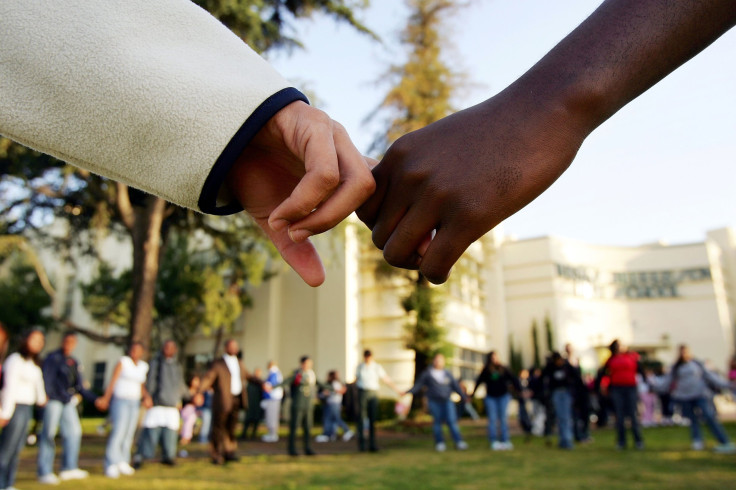Internalized Racism: Can You Be Racist Against Your Own Race?

We have often heard of white-skinned US residents using racial slurs against people of color to make them feel like outcasts in their own country.
But can a person belonging to a racial minority harbor feelings of intolerance toward their own race?
This is where the term "internalized racism" comes in. Even though such instances are rare and difficult to detect, internalized racism makes it presence felt subtly in the thinking and body language of people belonging to racial minorities.
“Internalized racism is the personal conscious or subconscious acceptance of the dominant society’s racist views, stereotypes and biases of one ’s ethnic group. It gives rise to patterns of thinking, feeling and behaving that result in discriminating, minimizing, criticizing, finding fault, invalidating, and hating oneself while simultaneously valuing the dominant culture,” Taking Action Against Racism In The Media reported.
In a nutshell, after living for a prolonged period of time in a society where mild to severe racism exists, it becomes hard for people belonging to racial minorities to not accept the attitudes of the dominant culture as the norm.
Eventually it extends to a point where people of color start adopting a white supremacist mindset, and begin displaying hatred toward their own ethnicity and community.
One of the manifestations of this attitude is the attempt by a member of a minority group to alter his/her skin tone or appearance to fit the superior standards of beauty as preferred by the Western culture, Thought Co. reported.
The late singer Michael Jackson can be cited in this regard, as he underwent a string of plastic surgeries during his lifetime to transform his facial features from “Afrocentric” to “Eurocentric.”
American society in the 21st century has not only found a way to put down people belonging to racial minorities, it has also found a way to mock non-whites who are racist toward their own race.
Nicknames like "Uncle Tom,” “sellout,” “pocho” or “whitewashed” are not uncommon when it comes to referring to people suffering from internalized racism.
In this regard, famous golfer Tiger Woods has been called a “sellout” because he identifies himself as “Cablinasian” (a combination of Caucasian, black, American Indian and Asian heritages) rather than as black. Woods has also faced criticism for dating an array of white-skinned women. He has been accused of harboring sentiments of internalized racism because he would not choose a woman from his own ethnicity or race as his love interest.
Despite a person of color trying to look less like how they were created, or being biased against people of their own community when it comes to choosing their love partner, there is really no way to tell if a person is really suffering from internalized racism or not.
However, if you do suspect any of your acquaintances suffering from the issue, you could confront them in a subtle but assertive manner and also recommend them to seek help for the same.
The issue is complicated further by the fact that a person who might be suffering from internalized racism often is unaware of the same. For example, Theodore R. Johnson, a political contributor to The Atlantic realized that he might be subconsciously racist against his own race after he took an Implicit Association Test.
According to the test, Johnson had a "strong automatic preference for European Americans compared to African Americans."
“For most people, such a designation would probably be unsettling. After all, the United States is a nation that ostensibly aspires not to judge others ‘by the color of their skin, but by the content of their character.’ But for me, it caused a mini-existential crisis. Why? Because I'm black,” Johnson wrote in a 2014 opinion piece published in the Atlantic.
According to United To End Racism, the reason internalized racism pervades the lives of African-Americans is because they refuse to share their experiences of becoming victims of racism with each other. If they started sharing their feelings of societal oppression, instead of keeping it bottled inside, or worse, agreeing with the very society that discriminates against their race, internalized racism will lose its root.
In order to have that “safe space,” where one can express what they are thinking freely and in an uninterrupted manner, one may want to participate in support groups. Such support groups, for various minority groups and ethnicities, exist in various parts of the nation and is a place where one can express solidarity with each other.
For people who realize that they are suffering from feelings of internalized racism, the act of opening up among people of their own race may be difficult at first, since they typically tend to harbor negative feelings about each other. But members of such a group should make an unspoken rule not to act on the basis of those feelings because the bitterness would not let them use their time at group sessions in a fruitful manner.
© Copyright IBTimes 2025. All rights reserved.






















